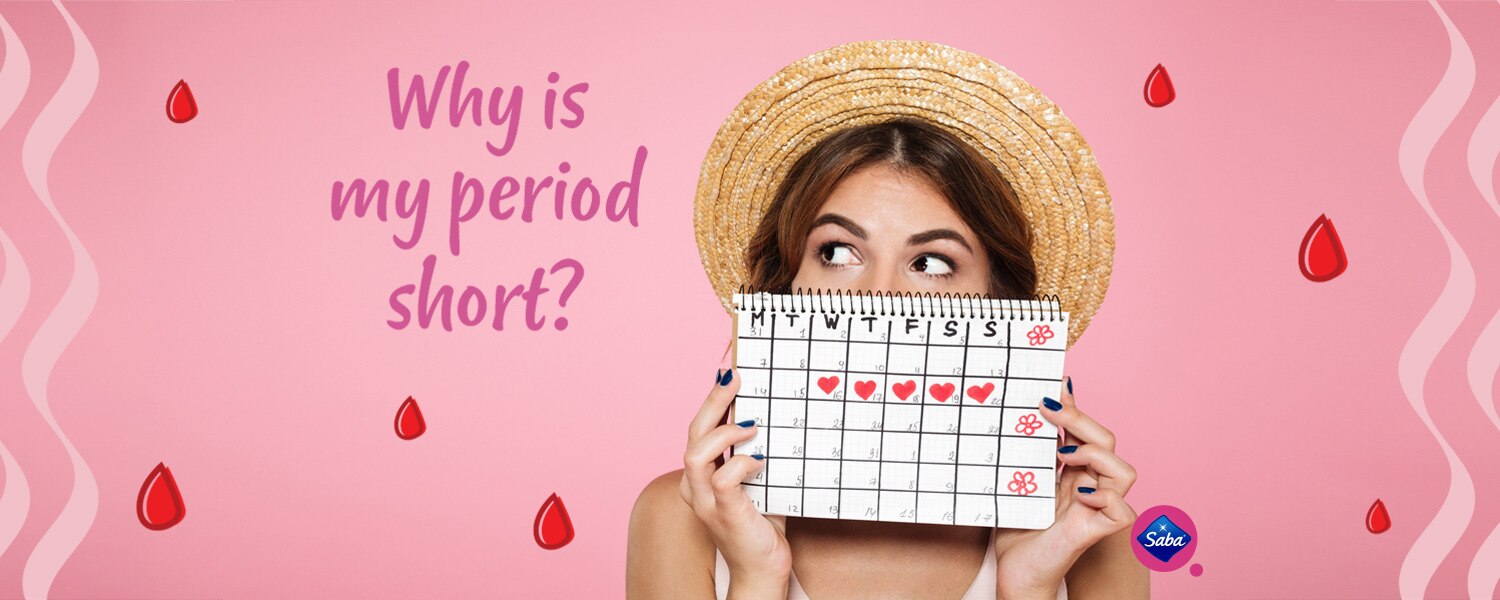Why is my period short?

Saba® makes you feel #CómodaContigo.
Menstrual cycles can be very different from one girl or woman to another, especially when it comes to periods. While some women and girls do not experience symptoms, others may experience some difficulties.
Some of us have very long and heavy periods, while others have lighter bleeding. And although a short period may seem like a good thing, very light flows can be a sign of irregularities, and the same goes for very heavy flows.
Remember that a regular menstrual period is one that occurs every month, and lasts 3 to 7 days, in menstrual cycles that are anywhere from 21 to 35 days long.
So, although a 3-day period seems very short, it is considered normal as long as you have it for the same amount of days every single month, and it is part of your usual menstrual pattern.
What can cause short periods?
To understand what differentiates a long period from a short period, we have to talk about how hormones work during the menstrual cycle. Estrogen is the hormone responsible for creating the lining of the uterus each month, so if your body does not produce a certain amount of estrogen, your endometrium will not be very thick. This means that when the endometrium starts coming out via your period, it will do so as a very light flow that will last only a short time.
In adolescents, for example, after menarche (first menstruation), they might experience shorter or irregular periods because their hormone levels (including estrogen) are not yet balanced. It might take up to 2 years for hormones to balance out and periods to become more regular or longer.
Short periods occur in women approaching menopause too. This is because, as this stage approaches, the ovaries stop producing estrogen and progesterone, therefore the formation of the endometrium also stops.
Hormonal contraceptives can also cause short periods. If you take the pill, for example, there is no hormonal decline because it constantly releases hormones into your system so there is no thickening and shedding of the endometrium. This can cause bleeding to be lighter and shorter or, depending on the form of hormonal contraceptive you use, you might not get a period at all.
Some conditions that can cause short periods and should be diagnosed and treated by a doctor or gynecologist are:
- Hormonal problems caused by the pituitary gland and hypothalamus, which can affect ovarian function.
- Thyroid dysfunction.
- Polycystic ovary syndrome (PCOS).
- Drastic weight changes.
One way to detect irregularities is to track your menstrual cycles, and all the symptoms you experience since, in addition to unusual changes in your period, these disorders tend to be accompanied by other symptoms.
If you are experiencing shorter than usual periods or symptoms that are not typical of your menstrual cycle, make sure to consult with your doctor or gynecologist.
